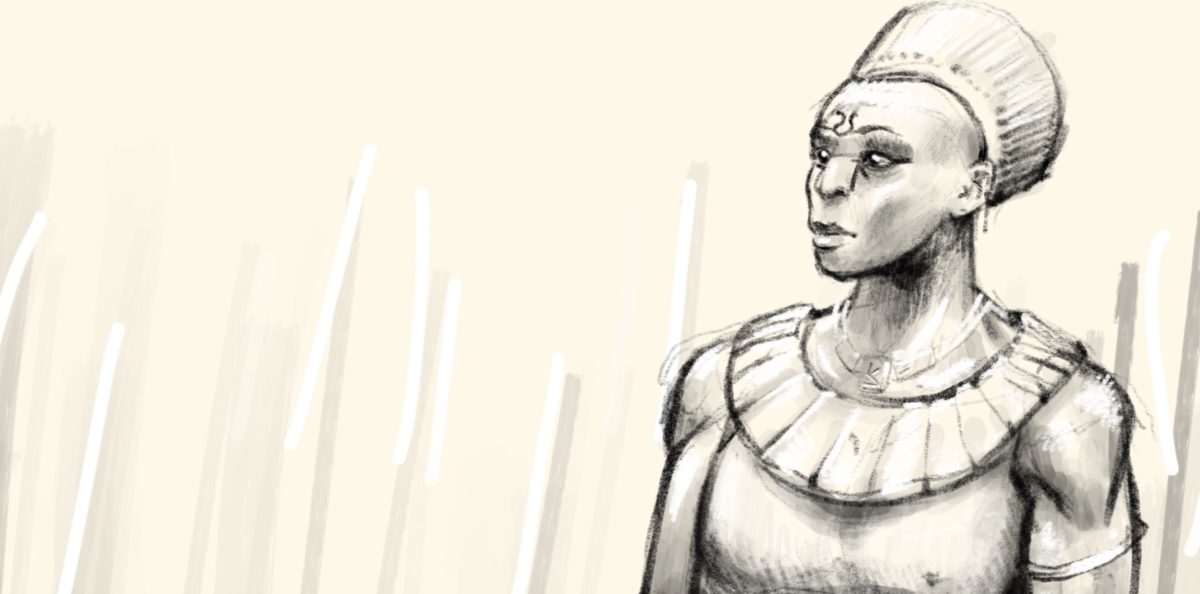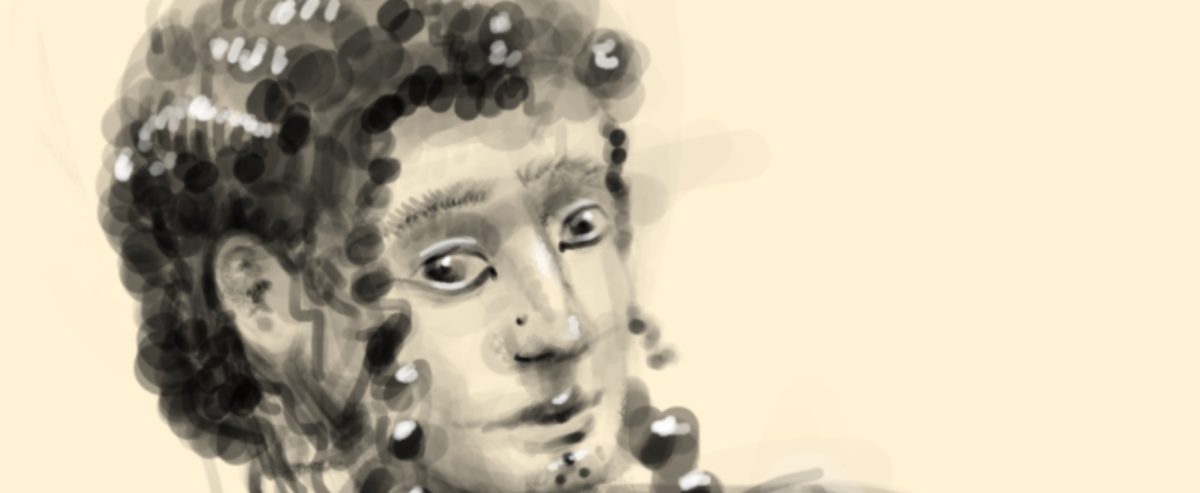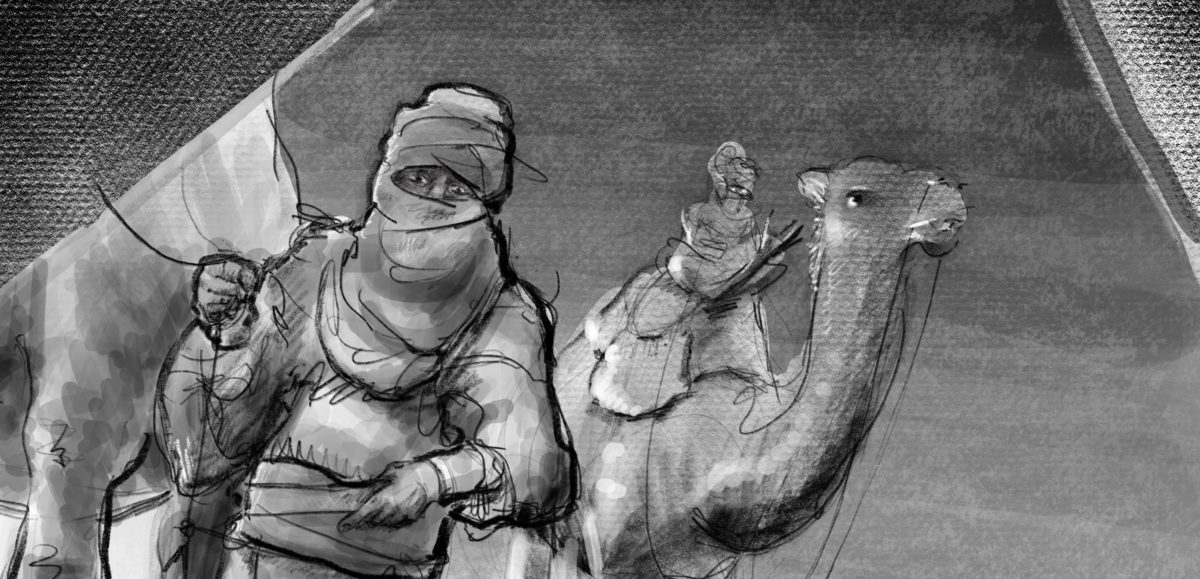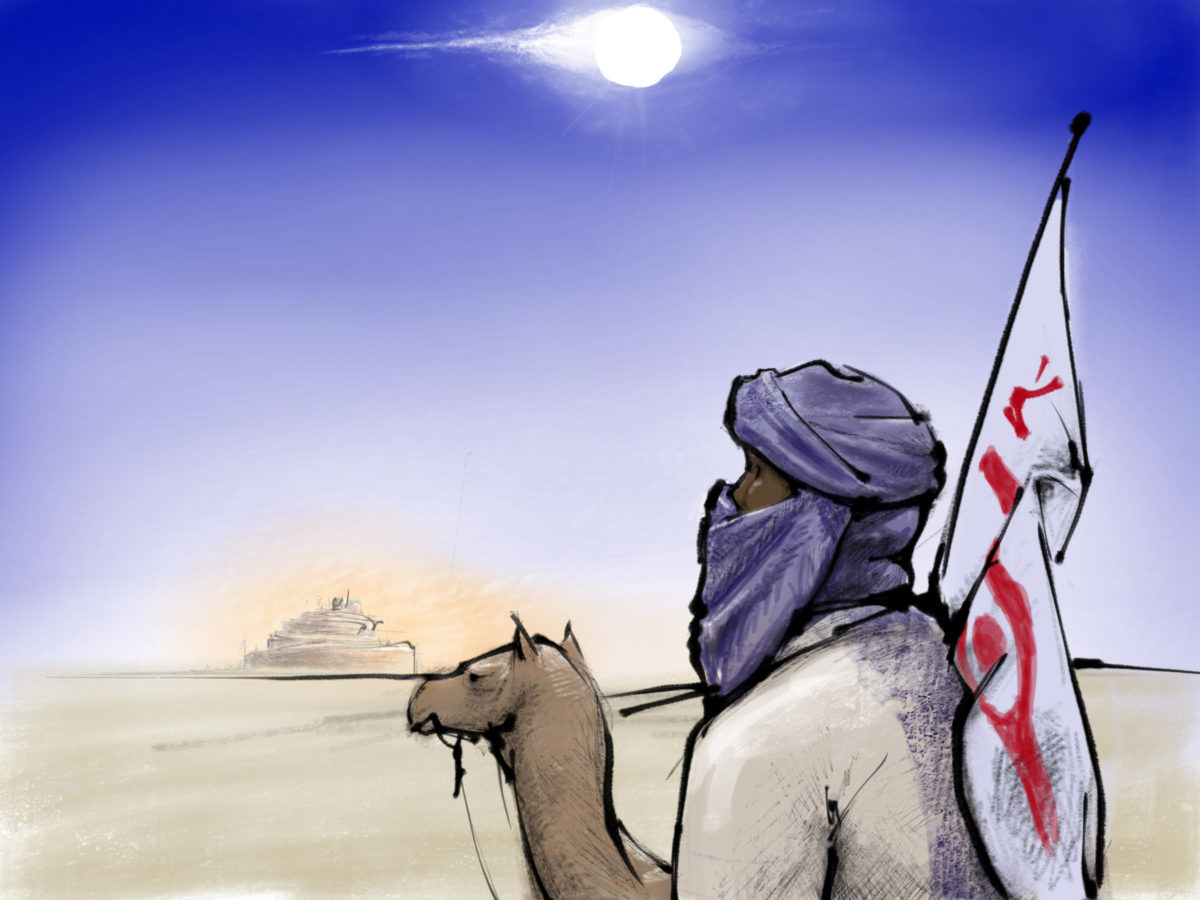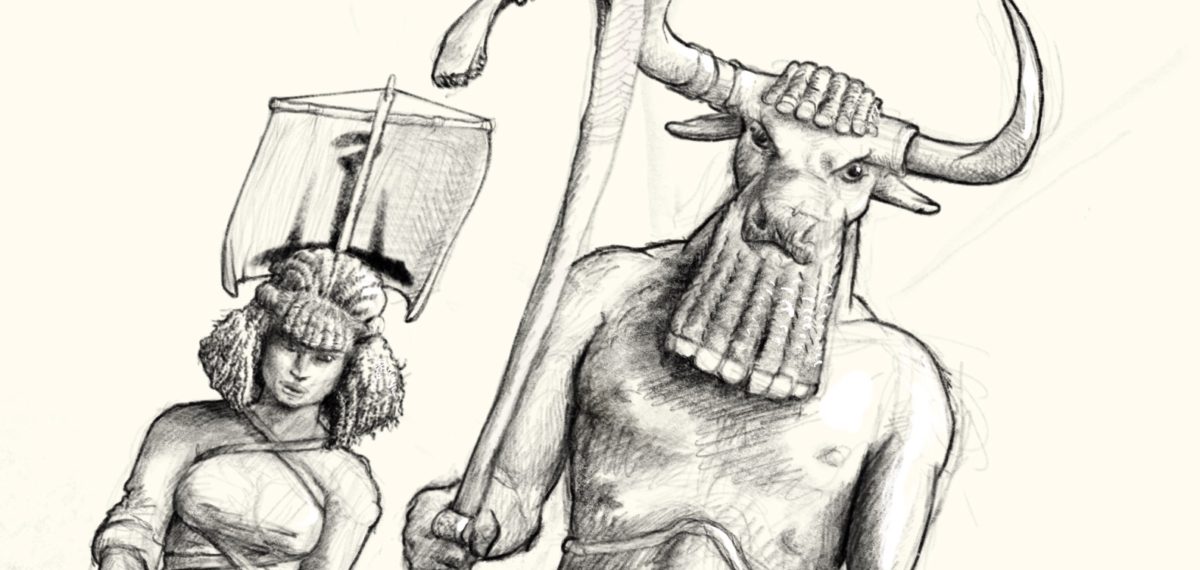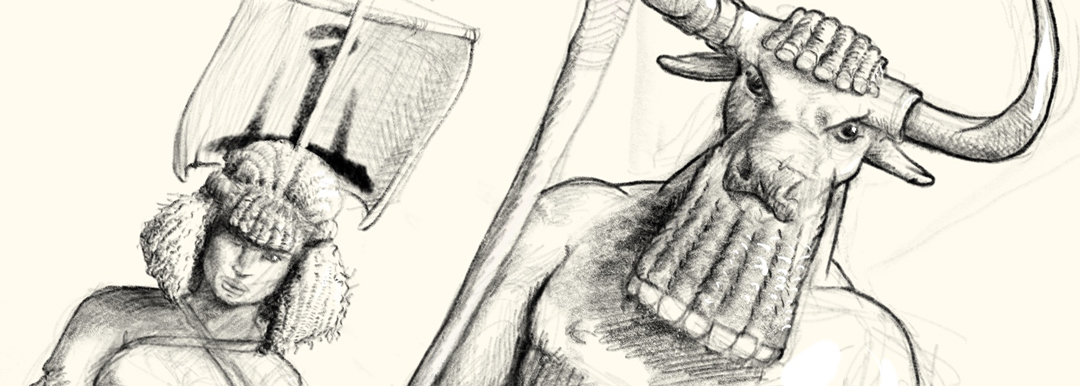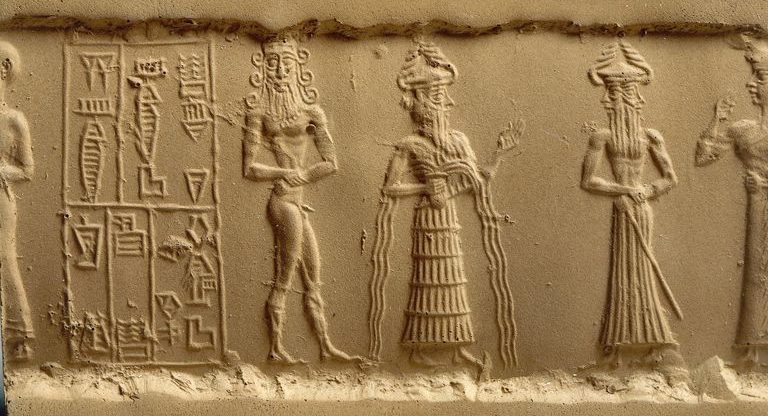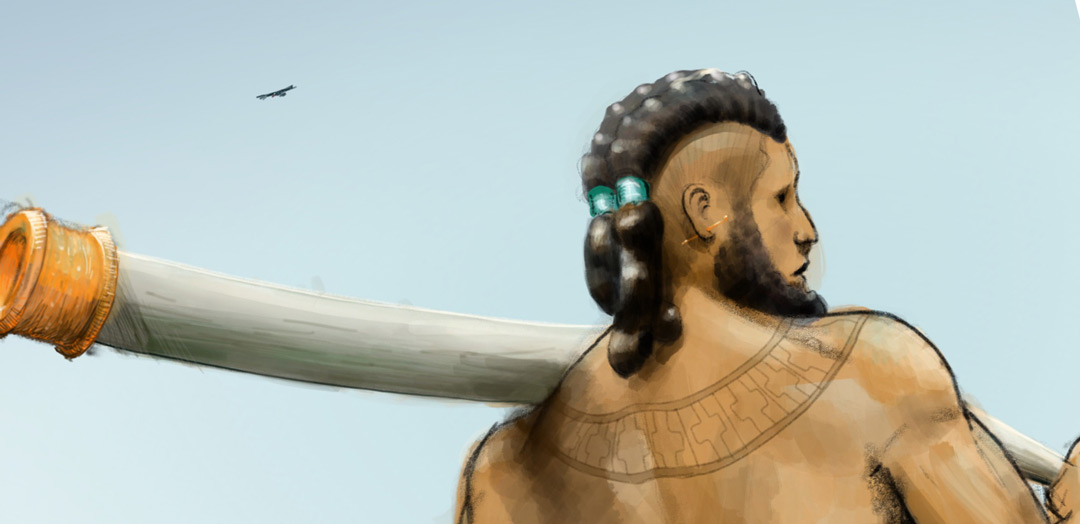Tag: Bloody-Handed Name of Bronze
Hanta, the Sacrificial Pharaonic Oarsbearer
The World of Names writhes with living promises, the words of Namedealers plying the whims and vanities of the mighty forces of nature.
But Hanta has made a promise to enter the Waters of the Underworld. To most, that would be a simple condemnation to death. And Hanta is fairly certain that for her, it is, too.

As she rows downstream, dressed in the splendrous ceremonial regalia of an escort of the Pharaohs, she broods on her fate, bound she is by a complex knot of long-held promises — a knot pulled tight by generations of treaties spun by the priests, astrologers, and magicians of Misr with the river; with the Sky that covers it with its unblinking eyes; with the towns and ports that seed its shores with life; with vassal kings and heroes.
Losing hope, she accepts the offer of the young, pretty courtesan Tinkari for companionship.
…and to uncover what transpires between them, you will need to read Hugo-nominated author Mimi Mondal’s tale, detailed in the pages of the upcoming Bloody-Handed Name of Bronze! Of course, like all of my work, you will be able to see it first as a patron of my work at my Patreon!

Tinkari
Tinkari is an ingénue, a sacred prostitute from the brothel-temple in the heart of the city of Kalrim. When he said he wanted to see the world, Mother rolled her eyes and said he’d be back soon; the world was full of ugliness and discomfort, when he lived surrounded by soft bread and music, by pleasure and beauty.
But Tinkari found something else.
Continue reading “Tinkari”Good Morning
The Children of Shama have strict hospitality rules that require them to offer sustenance and shelter to anyone lost in the desert. On the whole, this works out well, since it gives some assurance that one will be rescued if one finds oneself alone. It also means that, should a Child of Shama set out across the desert, they will be able to intercept other tribes and know that they will be offered water and at least minimal provisions.

But the owner of this tent doesn’t know what they’re doing. They’ve made the mistake of traveling in the day and sleeping at night. The tent owner awoke to find these two travelers approaching with curiosity, preparing, as the sun rises, to make camp for the day and sleep through the high heat.
They are concerned that this foolish person will be a waste of their water, their coffee, their meager bread, and their lamb jerky provisions. They’d be happy to help someone across the desert, fulfilling their duty. They’re less sanguine about giving it to someone who is clearly just going to die of exposure in the next day.

The Children of Shama
To the south and west of the Center of the World lies the Desert. Few would cross its expanse alone, as no roads may survive the winds that wash them away in waves of sand, scouring every footprint to nothing. To those from the Center of the World, it is a vast sea of sand and rock, untouched by rain, populated with ferocious wild donkeys, herds of camel, and little else but the unpredictable Desertmen.
The Desertmen, though, know it as their home, Nagash-Ayat, She who Hides Treasure. They call themselves the People of Shama and their many tribes know its wadi, its oases, its seasons and tides, its monsters, its hidden delights.
Continue reading “The Children of Shama”From Character Generation to Exposition
For almost 15 years, I’ve been working hard to eliminate the device of “character generation” from my roleplaying games. The tradition, like an awful lot in RPGs, comes from wargames, where your choices about your character at the outset are strategic decisions that affect the outcome of your tactical decisions in play. But if our play is not about optimal tactical decisions, surely those initial choices can be something other than optimizing resource allocation.
By contrast, in fiction, the process of establishing the “normal” for the character, as well as what they want and why, is called “character exposition.” With fiction once again as our model, let me explain where I’ve gone and where I want to be for A Traveler, Alone and Shock:2.
Continue reading “From Character Generation to Exposition”Prologue: Healing Scars
The Gulabadam sat at the newborn campfire ruminating, his prodigious jaw grinding slowly at the plain, salted barley flatbread that he found so delicious. His tail wrapped around his waist, sitting in his lap like a pet, and his huge, bovine eyes glittered in the firelight and dawn gloaming.
Continue reading “Prologue: Healing Scars”Galil and the Gudabadam
There were many ways this story could have gone. You know one already.
Continue reading “Galil and the Gudabadam”The Age of Giants
The Earthen Firmament was born from the passionate union of the Sky and the Waters of the Underworld. Their love cries we remember now as the Language of Names.
Continue reading “The Age of Giants”Eshud-Numash, Bearer of the Last Tusk of Grandmother Thunder
Eshud-Numash is carrying the Last Tusk of Grandmother Thunder, the ancestor of his people’s herd of Lumu, (which we know as stegatetrabelodon). The tusk will be: Old (Grandmother Thunder lived to 180 years. There have been two generations of the Lumu herd since then); Mighty (It’s a tusk. It’s also wielded as a weapon); Known to All (It has been carried by the scion of Eshud for centuries, as their badge of office); and Generous (From the open end of the tusk issues water, if it would save a life).
Continue reading “Eshud-Numash, Bearer of the Last Tusk of Grandmother Thunder”